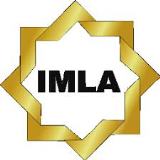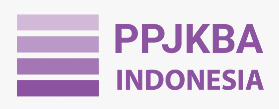ANTARA AGAMA DAN JIWA
(Adaptasi Pelaksanaan Ibadah Shalat Jumat Pada Masa Pandemi)
DOI:
https://doi.org/10.21274/ahkam.2022.10.1.63-98Keywords:
Jum’at prayer, Maqāṣid al-sharī’ah, Pandemics, Adaptation, Islamic ritualAbstract
The level of spread of the Covid-19 and the resulting death encourages various community activities to be able to adapt to the situation and regulations as a preventive measure. Religious activities that often bring mass gatherings are one of the activities that are affected, especially worship activities. The worship activities, especially those that make congregation an important part of it, such as fardu and Friday prayers, are required to adapt as a form of soul preservation which is one of the main objectives (maqāṣid) of Islamic law. On the other hand, the law of worship is basically ta'abbudī and tawqīfī whose space for ijtihad is narrow. The adaptations made have the potential to lead to heresy. This study tries to examine the possibilities of these adaptations and the extent to which these possibilities are carried out. The approach taken is a qualitative approach to literature through the theory of maqāṣid al-sharī'ah especially to investigate potential contradictions between the preservation of religion and the soul. This study pays attention to the rules governing the structure, level and type of maqāṣid with a case study on the adaptations in Friday prayer. The phenomena discussed include the suspension of prayers, arrangement of rows, and the synchronous practice. This study concludes that an adaptive form that is able to preserve of all maqāṣid kullīyah without sacrificing one of them should be done wherever possible. When this is not possible, the intermediate tarjih must consider various aspects of each prevailing condition through maqāṣid perspective.
References
Abdullah, Fuady, “Choosing Lives: Pandemic Emergency Triage from the Perspective of Maqāshid.” Islamuna: Jurnal Studi Islam 8, no. 2, December 31, 2021.
Ahmad, Ridzwan, “Permasalahan Ta’lil Al-Ahkam Sebagai Asas Penerimaan Maqasid Al-Shari’ah Menurut Ulama Usul.” Jurnal Fiqh 5, 30 Desember 2008.
AMJA Resident Fatwa Committee, “Ruling On Attending Jumu’ah And Congregational Prayers And On Opening The Masjids If Authorities Allow It During The Coronavirus/COVID-19 Pandemic | AMJA Online.” dalam https://www.amjaonline.org/fatwa/en/87757/ruling-on-attending-jumuah-and-congregational-prayers-and-on-opening-the-masjids-if-authorities-allow-it-during-the-coronaviruscovid-19-pandemic.
Bodruzzaman, AKM, “Suspension of Friday and Daily Congregational Prayers during Pandemic: A Juristic Maqasidic Study”, International Journal Of Fiqh And Usul Al-Fiqh Studies, Vol. 5, no. 2, 2021.
Bukhari, Hasan Abdul Hamid, “Al-Muwazanah Baina Hifz Al-Din Wa Hifz Al-Nafs”, Majallat Al-’Ulum Al-Shar’iyyah, Vol. 14, no. 2, 2020.
Dwiraharjo, Susanto, “Konstruksi Teologis Gereja Digital: Sebuah Refleksi Biblis Ibadah Online Di Masa Pandemi Covid-19”, EPIGRAPHE: Jurnal Teologi Dan Pelayanan Kristiani, Vol. 4, no. 1, 2020.
Idris, Fakhrizal, Muhammad Yusram, and Azwar Iskandar, “Salat Jumat Daring Dalam Perspektif Hukum Islam”, BUSTANUL FUQAHA: Jurnal Bidang Hukum Islam, Vol. 2, No. 1, 2021.
Jubba, Hasse, “Beradaptasi Dengan Bencana: Strategi Beribadah Umat Islam Dan Kristen Di Tengah Pandemi Covid-19”, Religious: Jurnal Studi Agama-Agama Dan Lintas Budaya, Vol 5, No. 1, 2021.
Kementerian Agama RI, "Panduan Penyelenggaraan Kegiatan Keagamaan di Rumah Ibadah dalam Mewujudkan Masyarakat Produktif dan Aman Covid -19 di Masa Pandemi", dalam http://itjen.kemenag.go.id/sirandang/peraturan/6158-15-surat-edaran-menteri-agama-nomor-15-tahun-2020-tentang-panduan-penyelenggaraan-kegiatan-keag.
Kurniawan, Edi, “Distorsi Terhadap Maqasid Al Syariah Al Syatibi Di Indonesia”, Al-Risalah, Vol. 18, No. 2, 2018.
Othman Muhammed Gharib, Assist, “Five Essentials Between the Restriction and Addition”, Journal of Arts, Literature, Humanities and Social Sciences 12, 2017.
al-Raysuni, Ahmad, Al-Tajdid Al-Usuli, Herndon: IIIT, 2014.
———. Nazariyyat Al-Maqasid ’inda Al-Imam Al-Syatibi, Kairo: Dar al-Kalimah, 2014.
al-Shatibi, Ibrahim, Al-Muwâfaqât Fi Ushûli Al-Shariah, Kairo: Dar al-Kutub al-Ilmiyyah, 2003.
al-Shehri, Khaled Abdulaziz, “The Ruling of Holding Friday Prayer at Home During COVID-19 Pandemic”, Journal of Islamic Sciences 3, no. 5, 2020.
WHO, “Timeline of WHO’s Response to COVID-19”, dalam https://www.who.int/emergencies/diseases/novel-coronavirus-2019/interactive-timeline#!
———, “WHO Coronavirus (COVID-19) Dashboard | WHO Coronavirus (COVID-19) Dashboard With Vaccination Data”, dalam https://covid19.who.int/.
Widjaja, Fransiskus Irwan, “Menstimulasi Praktik Gereja Rumah Di Tengah Pandemi Covid-19.” KURIOS: (Jurnal Teologi Dan Pendidikan Agama Kristen)", Vol. 6, No. 1, 2020.
Wizārat al-Auqāf wal-Shu`ūn al-Islāmīyah Al-Kuwaytīyah, Al-Mausū’ah Al-Fiqhīyah, Kuwait: t.p., 2007.
Zakariyah, Habeebullah, Turki Obaid Al-Marri, and Bouhedda Ghalia,“Ighlāq Al-Masājid Man’an Lī Intishār Fayrūs Corona Dirāsah Taḥlīlīyah Fī Ḍaw’ Maqāṣid Al-Sharī`ah”, AL-IHKAM: Jurnal Hukum & Pranata Sosial, Zayed Charitable and Humanitarian Foundation, Ma’lamah Zayid…, Vol. 15, No. 2, 2020.
Zayed Charitable and Humanitarian Foundation, Ma’lamah Zayid, t.t: International Islamic Fiqh Academy, 2013.













